Language model artificial intelligence (AI) is now the it thing in big tech the world over. Once a conversation point for people who are perennially online, these platforms are now truly mainstream. Millions upon millions of people make use of OpenAI’s ChatGPT every day, owing to its completely open nature (you only need an email address to use) and its simple usability.
It is often said that one’s imagination is the only limit for all the things that ChatGPT can do, and sometimes this seems very close to being true. In education specifically, the AI language model can be used to write out entire essays for you. It can be used to beat quizzes and correctly answer exam questions.
Educators and academics quickly took note of this and grew concerned that ChatGPT could be used by students to cheat, and worse, to completely bypass learning. It is very easy to simply ask ChatGPT to answer questions for you, in a homework exercise for example.
But, when it comes to brass tacks, ChatGPT is a tool and a helpful one at that. So we have compiled a few of the more honest things that university students can do on the platform to bypass tedious tasks and provide help in a pinch.
Honourable mention: Ask ChatGPT about tips around work/social life balance
Often the most difficult thing for university students, especially in their early years, to overcome is the difficult task of balancing their school work and their social lives. Of course, the increased independence of being a young adult leans one towards parties, so we brought a common problem to ChatGPT:

“As an AI language model,” it tells us, “I cannot make decisions for you, but here is some advice that might help you make your own decision:”
It then provides a very parental breakdown of why you should consider studying instead, saying that going to the party may make you tired, or hungover and you won’t be able to study.

Importantly, it also provides reasons why socialising with friends is important, so it allows you to make up your own mind on the matter.
You can ask it for recommendations
The nature of the ChatGPT model means it has knowledge on an enormous amount of topics and things, and thus you can use it to provide recommendations. These can really range from anything, from recipes to cars to YouTube channels.
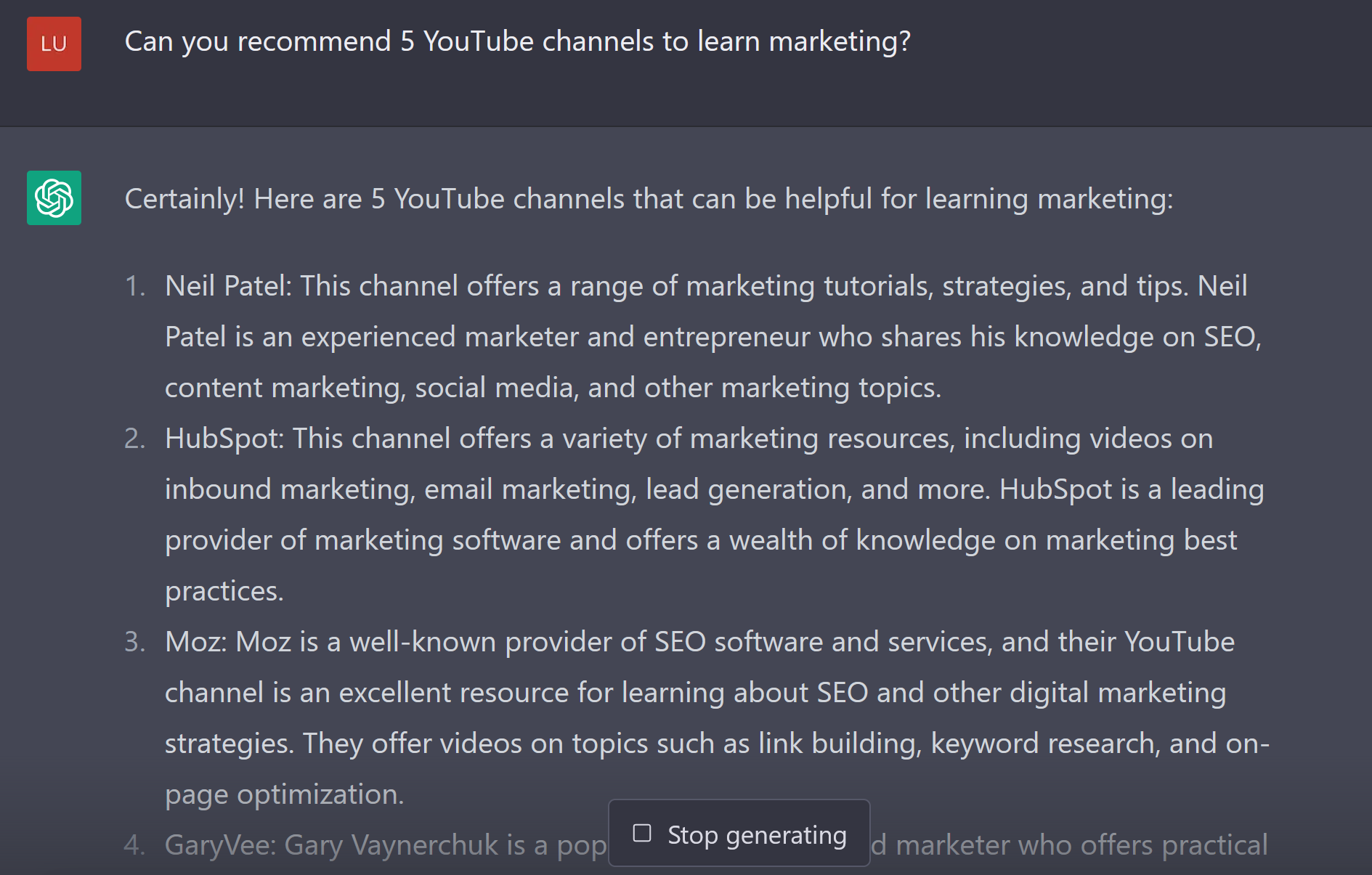
University students can ask for recommendations on authors, sources, journals, and just about any other academic material you can think of:

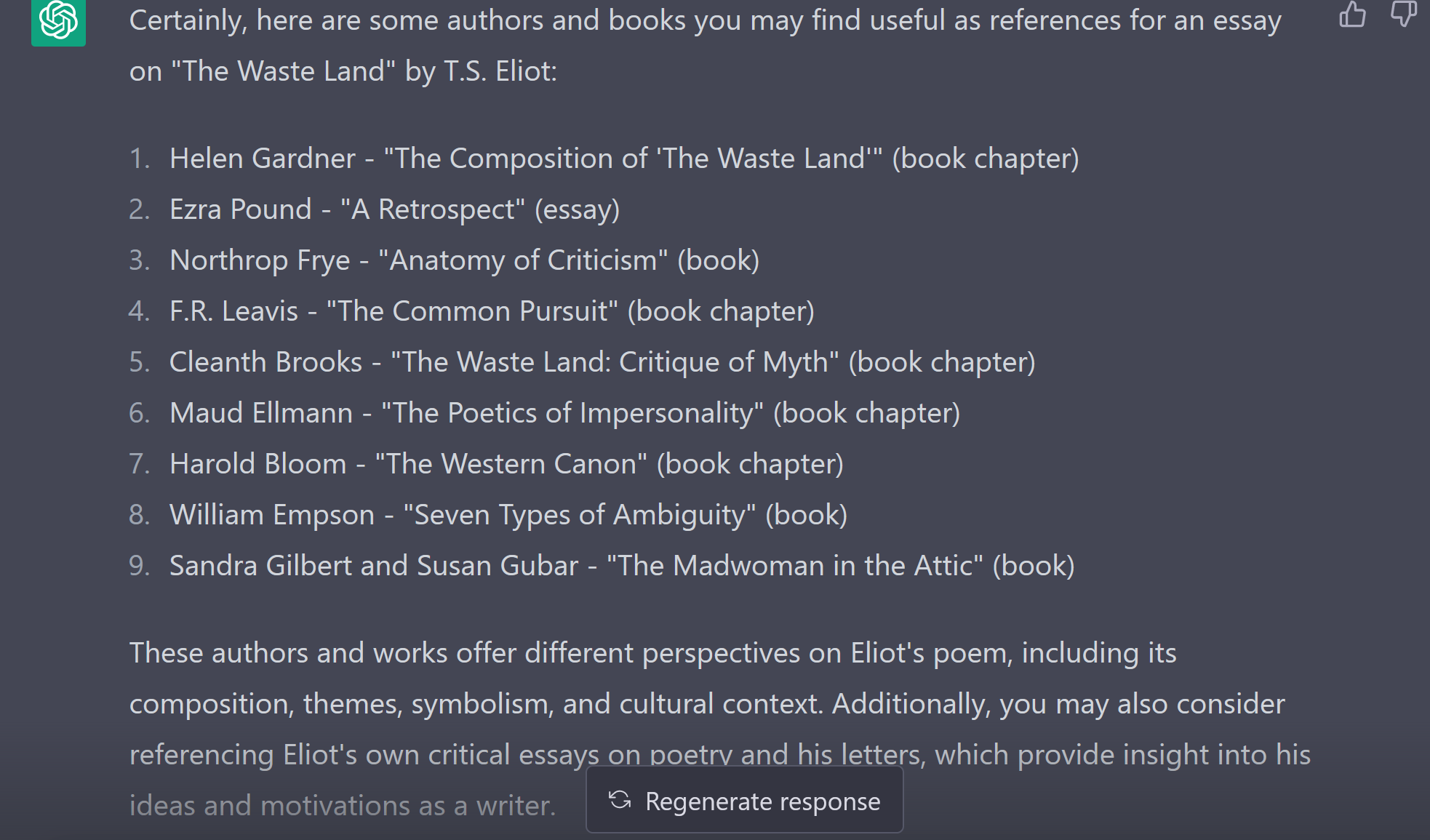
Remember that it’s all about what you ask in the prompt, and being as specific as possible will net you the best answer with the most relevant information. ChatGPT isn’t a person, it’s a programme and it needs to be treated as such.
Ask ChatGPT to provide study tips and breakdowns
While it can’t study for you, ChatGPT can help you design a study guide for your subject and it can help by providing tips and tricks to make the most of your time when studying for exams, or tests.

ChatGPT can essentially generate limitless tips and tricks to help you study, and again, the more precise you are with your prompt, the more you will receive from the answer.
Don’t be afraid to get specific, if you have a biology exam, ask it for tips and tricks specifically about studying biology. You can also adjust the number of pointers it gives you. Ask it for just 5, or 10, otherwise, it will go as long as it wants.
Ask it to help with your writing and composition
One of the trickiest things to do when you begin your university or tertiary career is to come to terms with the composition of essays, such as how to write a proper introduction with signposting, for example. This is something you will have to learn quickly, and chances are university will be the first time you do it.
You can ask ChatGPT for help:

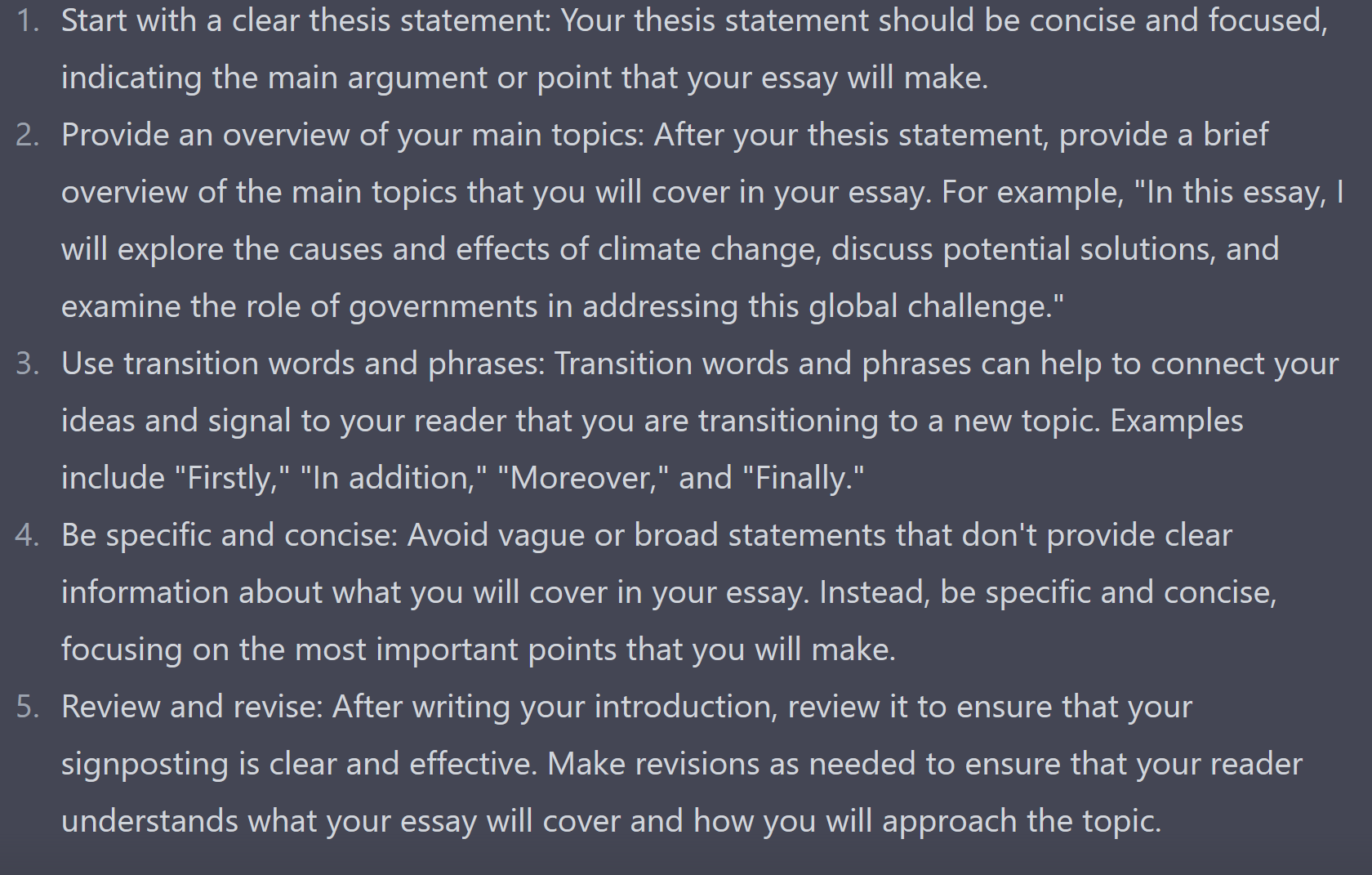
Another block for burgeoning academics is how to write a thesis or research paper. ChatGPT can help you in understanding how to put together an abstract for example.
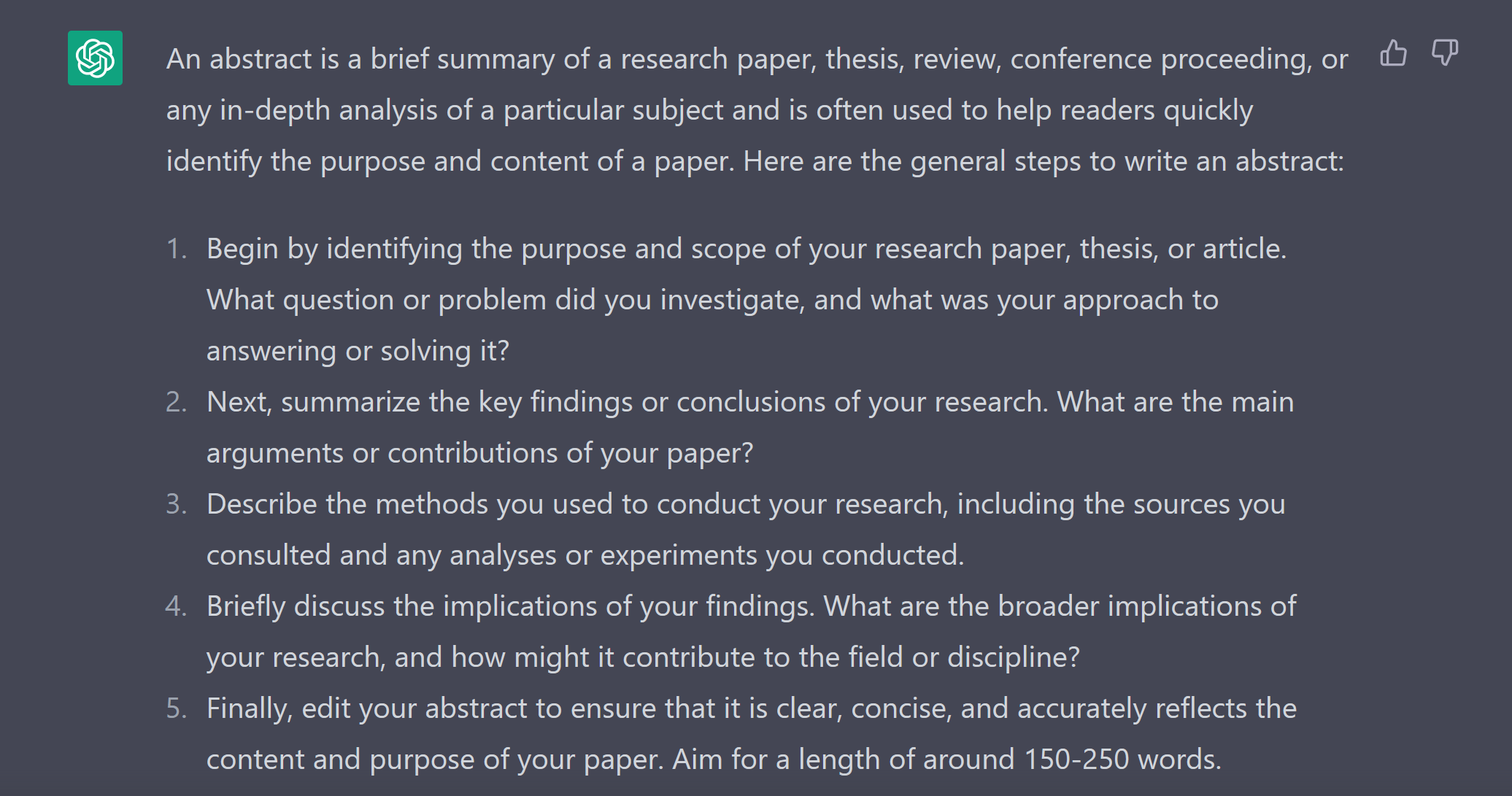
Each point of a thesis can be broken down into understandable parts by the model, including how to compose a literature review and a theoretical breakdown. You can also ask for help in understanding grammar, syntax, voice and other parts of writing
You can ask it any question you may think of, especially if you don’t understand something about your work, or want extra info
While OpenAI says that ChatGPT begins to falter on information past 2021, the model is a deep font of anything you want to know. You can ask for information on certain topics or points, or even what certain words mean:
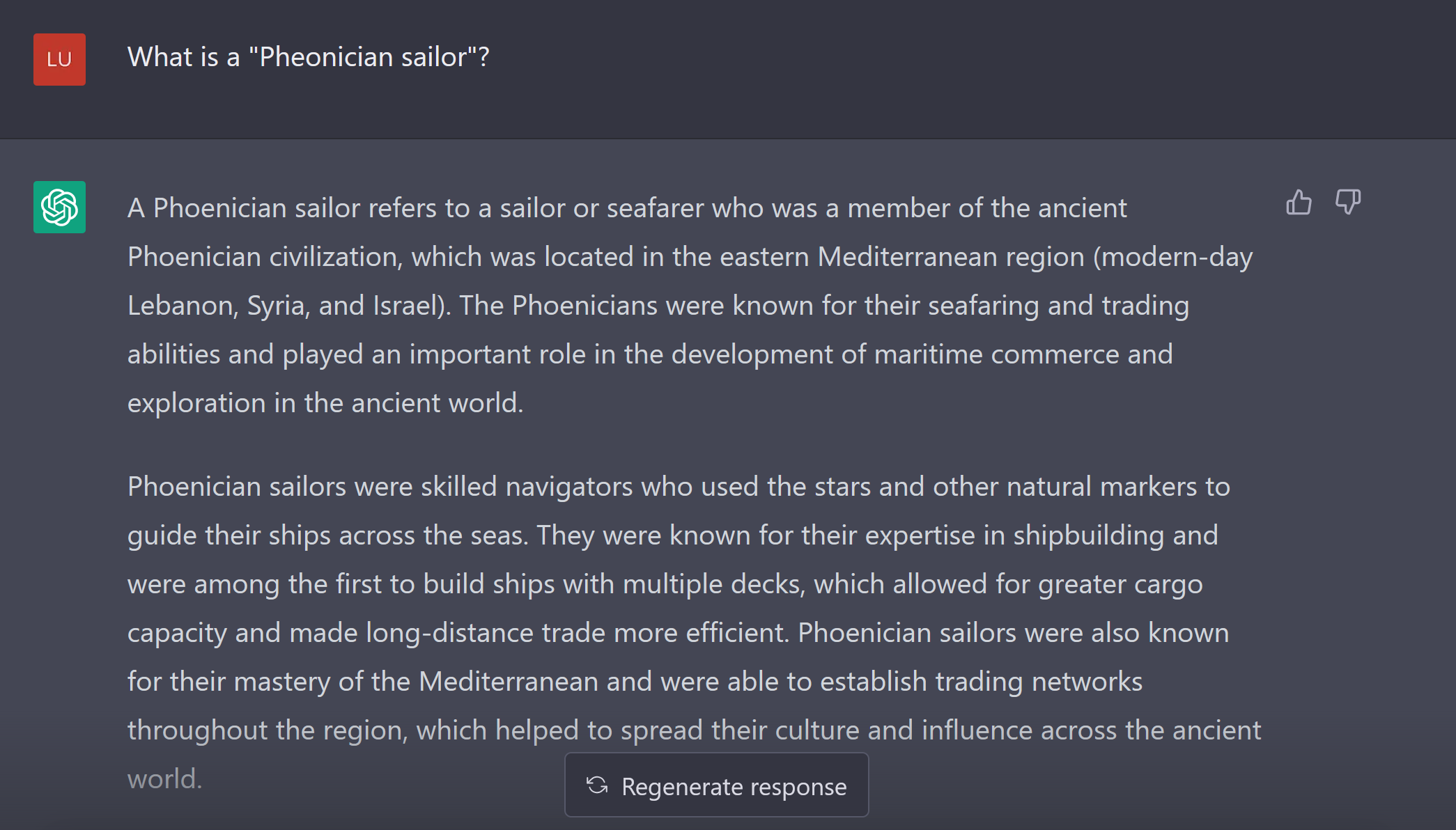
Or you can ask it to describe persons of interest, such as names of authors you may find as you read along your work:
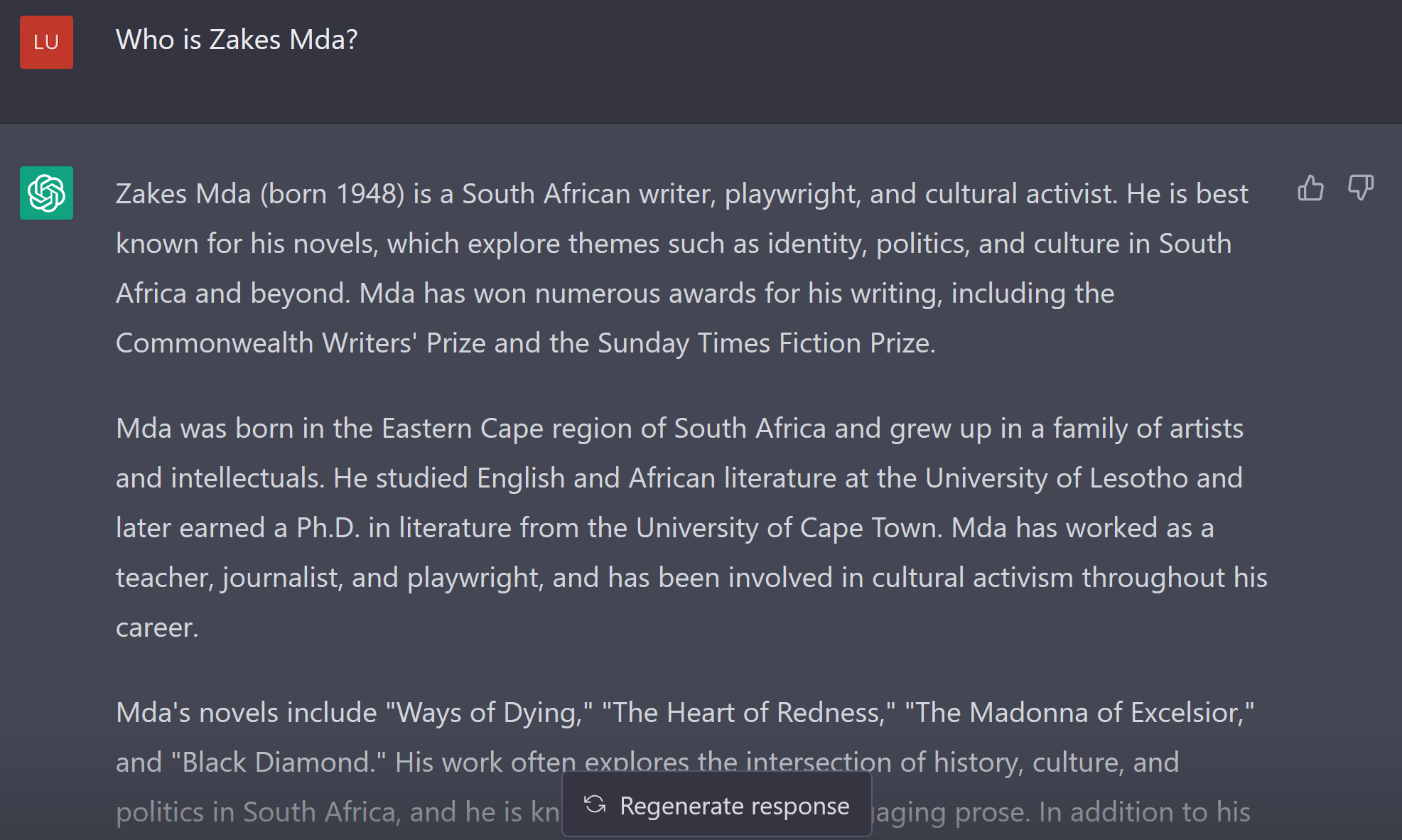
Remember that ChatGPT is capable of providing incorrect information also, so if something seems strange or out of place – it’s safe to take it with a pinch of salt. Working on your prompts can reduce the chance of this.
It is also important to understand that you are not able to cite AI models like ChatGPT in your references, because, simply put, they aren’t real human beings. This means that any information that you place into your work directly from ChatGPT could be seen as plagiarism.
You can avoid this by getting your own sources, and simply using the AI to help you understand your work more.
ChatGPT can help you with your referencing
Finally, one of the more impressive uses of ChatGPT is that it can turn the names of works and their authors into references for your reference list or bibliography. This is often a tedious process that involves little actual thinking once you understand your institution’s referencing style.
We simply provided author names, titles and a publisher and received full citations ready to be plugged into the reference list.
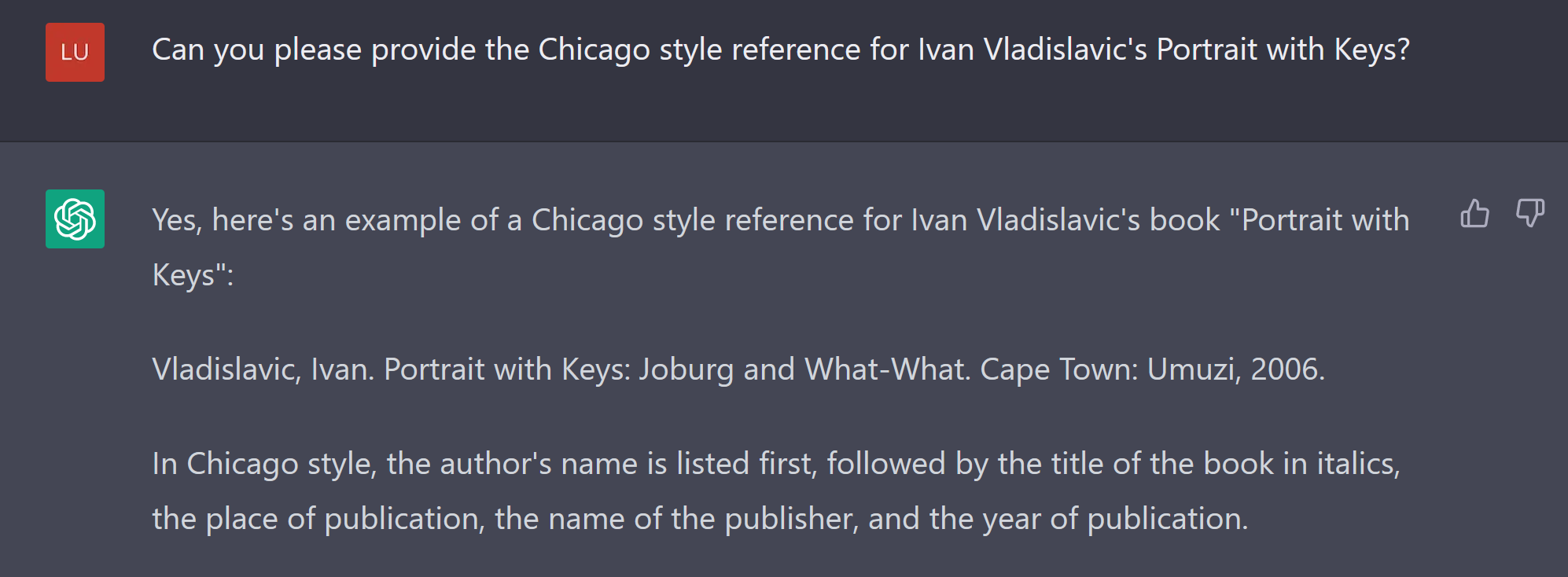
Remember to include the referencing style of your choice in the prompt, and the more information you can give it the better. Here, it correctly referenced a South African textbook with very little information.
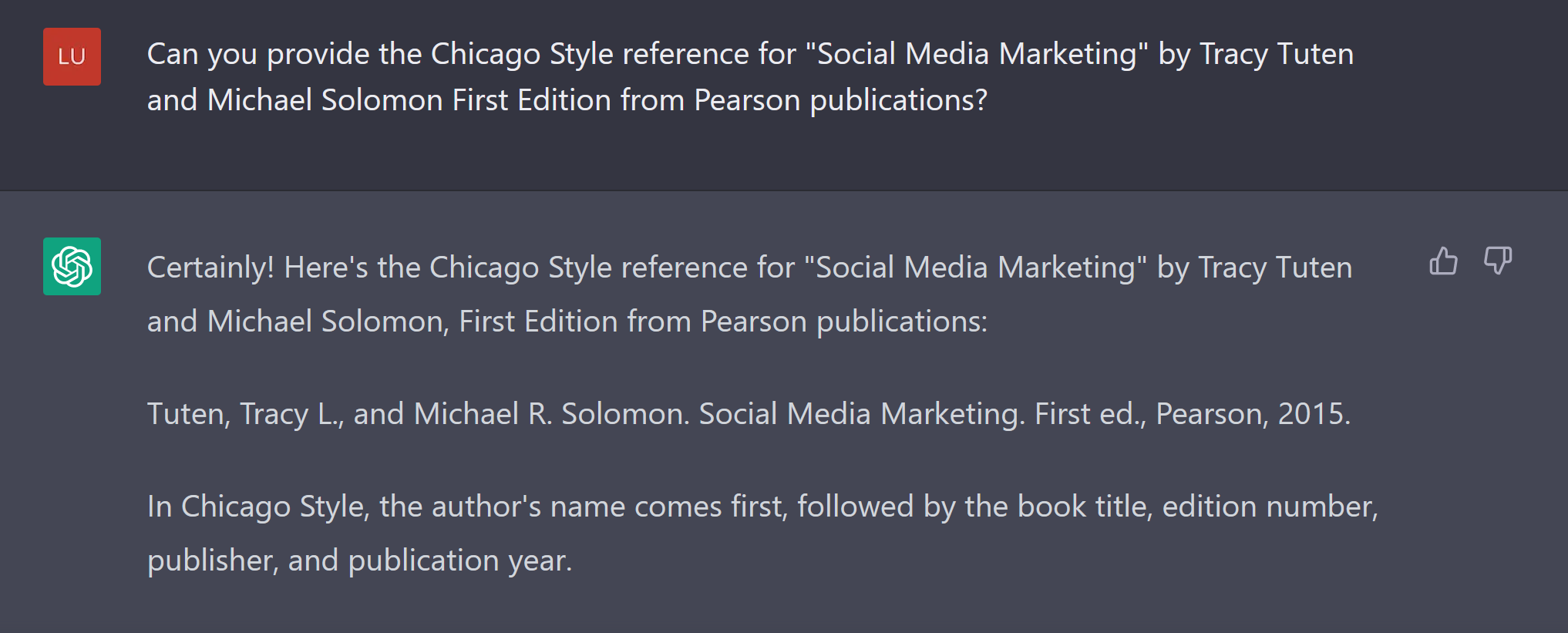
This is a massive time saver, and virtually no different from software that asks for each individual item of the citation before creating the reference for you. So you don’t need to worry about this being cheating.
However, knowledge of the style and critical thinking is necessary here, because it can provide citations that only seem correct, and it is up to you to adjust them.
Remember, ChatGPT is a tool first, use it to make your life easier, but if you try to use it to fool your institution or cheat the system, you will be very disappointed with the results.
[Image – Christin Hume on Unsplash]

